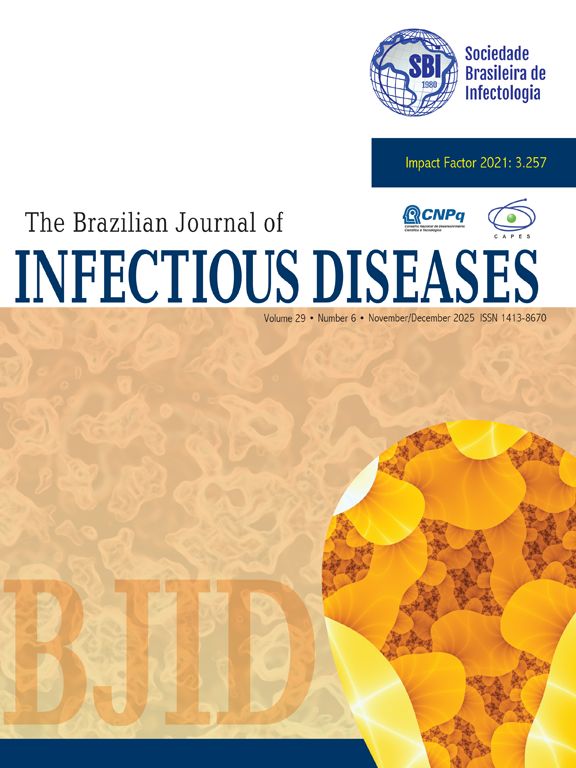Extended spectrum β-lactamase (ESBL)-producing bacteria have become recognized as a problem in South America. The aim of this study was to evaluate risk factors and mortality rate in bacteremia caused by ESBL-producing Klebsiella pneumoniae in a Brazilian hospital.
MethodsA three-year retrospective cohort study with 104 cases of K. pneumoniae bacteremia (61 ESBL and 43 non-ESBL). Several clinical and laboratory variables were evaluated. The outcome of interest was 30-day mortality. The adequate treatment was evaluated according to antibiotic susceptibility.
ResultsMultivariable analysis showed that central venous catheter and mechanical ventilation were independent risk factors for ESBL. The duration of hospitalization before the bacteremia was not a risk factor. Mortality was similar in ESBL and non-ESBL and inadequate therapy was not shown to be a risk factor.
ConclusionESBL-producing Klebsiella bacteremia can occur early, suggesting that a carbapenem should be included in the initial empirical therapy for bacteremia in patients under mechanical ventilation and/or central venous catheter in our institution.




